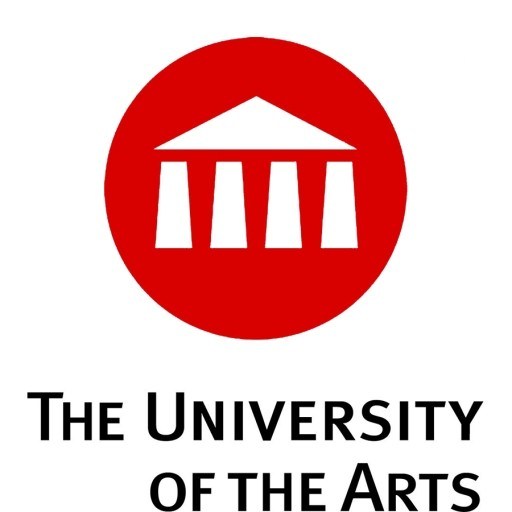Photos of university / #universityofhelsinki
The Bachelor's Degree Programme in Mathematics and Statistics at the University of Helsinki offers a comprehensive foundation in the core principles and methods of mathematics and statistics, preparing students for diverse careers in research, industry, finance, education, and data analysis. This programme provides students with a solid understanding of mathematical theories, including algebra, calculus, geometry, and analysis, alongside essential statistical methods and data analysis techniques. Through a combination of lectures, seminars, laboratory work, and independent study, students develop critical thinking, problem-solving, and quantitative reasoning skills that are vital in today's data-driven world. The curriculum is designed to build a strong mathematical and statistical knowledge base, fostering an appreciation of the beauty and applicability of mathematics in scientific and everyday contexts. Students will have opportunities to engage in applied projects, collaborate with researchers, and utilize modern computational tools and software. The programme emphasizes both theoretical foundations and practical skills, enabling graduates to effectively analyze complex data, model real-world phenomena, and contribute innovative solutions to societal challenges. Additionally, students can tailor their studies with elective courses, participate in international exchange programmes, and engage in research activities. The exceptional academic environment at the University of Helsinki ensures students receive individual guidance and mentorship from leading experts in the fields of mathematics and statistics. Graduates of this programme are well-equipped for further studies at the master's level, or for careers in academia, industry, government agencies, or entrepreneurial ventures related to data science, financial modelling, actuarial work, and scientific research. The programme aims to cultivate versatile professionals capable of applying mathematical and statistical knowledge to solve practical problems and advance knowledge across disciplines, empowering them to succeed in a rapidly evolving global landscape.
The Master's Degree Programme in Mathematics and Statistics at the University of Helsinki offers a comprehensive and in-depth education designed to prepare students for diverse careers in academia, industry, and research. The programme provides students with a strong theoretical foundation along with practical skills in various areas of mathematics and statistics, enabling them to analyze complex problems and develop innovative solutions. Throughout the programme, students have the opportunity to specialize in areas such as pure mathematics, applied mathematics, mathematical physics, statistical analysis, data science, and computational statistics, among others. The curriculum combines mandatory core courses with a broad selection of electives, allowing students to tailor their studies according to their interests and career goals.
Students will engage in rigorous coursework that covers fundamental topics like algebra, analysis, geometry, probability theory, and statistical inference. Advanced courses might include mathematical modeling, numerical analysis, stochastic processes, and Bayesian methods. The programme emphasizes the development of critical thinking, quantitative reasoning, and problem-solving skills, which are essential for tackling real-world challenges in science, business, finance, technology, and beyond. Moreover, students participate in research projects, seminars, and workshops to gain practical experience and to stay abreast of the latest advancements in their fields.
The university fosters an international learning environment, welcoming students from around the world and promoting collaboration across disciplines. The programme also offers opportunities for international exchange and networking, broadening students' perspectives and global outlooks. Graduates of the programme will be equipped with versatile skills that are highly valued in a variety of sectors, including academia, technology companies, government agencies, and consulting firms. Whether aiming for an academic career or industry innovation, students will benefit from the university’s expert faculty, state-of-the-art facilities, and strong focus on research and innovation.
By completing this programme, students will earn a Master of Science (Economics and Business Administration) degree, opening doors to doctoral studies or professional careers that require advanced mathematical and statistical expertise. The programme's flexible structure, combined with its rigorous academic standards, ensures that graduates are well-prepared to contribute to scientific advancements and decision-making processes in a data-driven world.
Program requirements for the Master's Degree in Mathematics and Statistics at the University of Helsinki include the successful completion of core courses in advanced mathematics and statistical methods, amounting to at least 120 ECTS credits. Applicants are expected to hold a Bachelor's degree or equivalent in mathematics, statistics, or a related field. The program emphasizes both theoretical foundations and practical applications, requiring students to participate in research seminars and complete a master’s thesis demonstrating independent research skills. Fundamental courses cover topics such as real analysis, algebra, probability theory, and statistical modeling. Elective options allow students to specialize in areas like computational mathematics, stochastic processes, or biostatistics, aligning their studies with career goals. The program also fosters proficiency in programming languages relevant to data analysis, such as R and Python. As part of the curriculum, students engage in group projects and presentations to enhance their communication skills. International students should provide proof of English language proficiency, typically through TOEFL or IELTS scores, complying with university standards. Entrance requirements include academic transcripts, a motivation letter, and letters of recommendation. The program encourages interdisciplinary collaborations, integrating insights from computer science, physics, and economics, reflecting its flexible and comprehensive approach. Graduates are prepared for careers in academia, industry, and public sector roles that require advanced quantitative skills, research expertise, and the ability to analyze complex data. Continuous assessment methods such as exams, coursework, project reports, and thesis evaluation are employed throughout the program to ensure mastery of subject matter. The university also provides opportunities for attending international conferences and publishing research, supporting the development of professional networks. Graduates receive the master's degree in mathematics or statistics, which qualifies them for PhD studies or employment in specialized fields requiring advanced analytical abilities.
The Financing of the Mathematics and Statistics degree program at the University of Helsinki primarily consists of a combination of tuition fees (if applicable), government funding, and possible external scholarships. Since the program is offered in Finland, most degree programmes at the University of Helsinki are publicly funded by the Finnish government, which ensures that students do not pay tuition fees for bachelor's and master's degree studies for EU/EEA students. International students from non-EU/EEA countries may be required to pay tuition fees, but the specific fees for the Mathematics and Statistics program are determined annually by the university. These fees are generally competitive and are designed to cover the costs associated with teaching, academic resources, and student services.
In addition to tuition fees, students often have access to various financial aid options. The University of Helsinki offers scholarship programs for non-EU/EEA international students to assist with living expenses. These scholarships are highly competitive and are awarded based on academic merit, motivation, and other criteria. For Finnish and EU/EEA students, financing is primarily through government student grants and loans, managed by the Finnish Student Health Service (FSHS) and other national agencies. Finnish students can apply for a study grant, which is designed to support full-time students with their living expenses during their studies.
Moreover, students are encouraged to seek external funding sources, such as scholarships from Finnish foundations, non-governmental organizations, or international bodies. Many students also work part-time in research projects, teaching assistance roles, or other university employment opportunities, which can help offset personal expenses. The University of Helsinki supports students in finding employment through official job portals and student employment services.
Students should also consider the costs associated with living in Helsinki, including accommodation, transportation, and study materials. These costs are not covered by university financing but are an important part of the overall financial planning for students. The cost of living in Helsinki can vary, but students often budget for accommodation, which can be subsidized through student housing organizations, and personal expenses.
In summary, the financing of the Mathematics and Statistics program at the University of Helsinki is primarily supported by Finnish government funding and institutional scholarships, complemented by external scholarships and student employment. The university strives to make education accessible, offering financial support options tailored to different student needs, especially for those coming from abroad.
The Mathematics and Statistics degree program at the University of Helsinki offers students a comprehensive education in fundamental and advanced mathematical and statistical concepts. Designed for those interested in pursuing careers in academia, research, data analysis, finance, technology, and other fields that require strong quantitative skills, the program provides a solid foundation in pure and applied mathematics as well as modern statistical methods. Students will have the opportunity to learn through a combination of lectures, seminars, project work, and independent study, encouraging both theoretical understanding and practical application. The curriculum covers core areas such as algebra, calculus, discrete mathematics, probability theory, and statistical inference, alongside specialized modules in computational mathematics, data analysis, machine learning, and data management. Emphasizing analytical thinking, problem-solving, and logical reasoning, the program prepares graduates to tackle complex issues across diverse industries. The program is typically offered in English, attracting international students and fostering a multicultural learning environment. Students are also encouraged to participate in internships, research projects, and collaboration with industry to gain real-world experience. The University of Helsinki's strong links with scientific and technological sectors provide students with access to leading research, cutting-edge tools, and networking opportunities. Upon graduation, students will be equipped with versatile skills suitable for doctoral studies or employment in sectors such as finance, technology, education, and government agencies. The program also emphasizes the development of communication and teamwork skills, vital for success in global and multidisciplinary workplaces. Overall, the Mathematics and Statistics degree at the University of Helsinki aims to produce well-rounded, innovative professionals capable of applying mathematical and statistical knowledge to solve practical problems and drive technological advancement.








